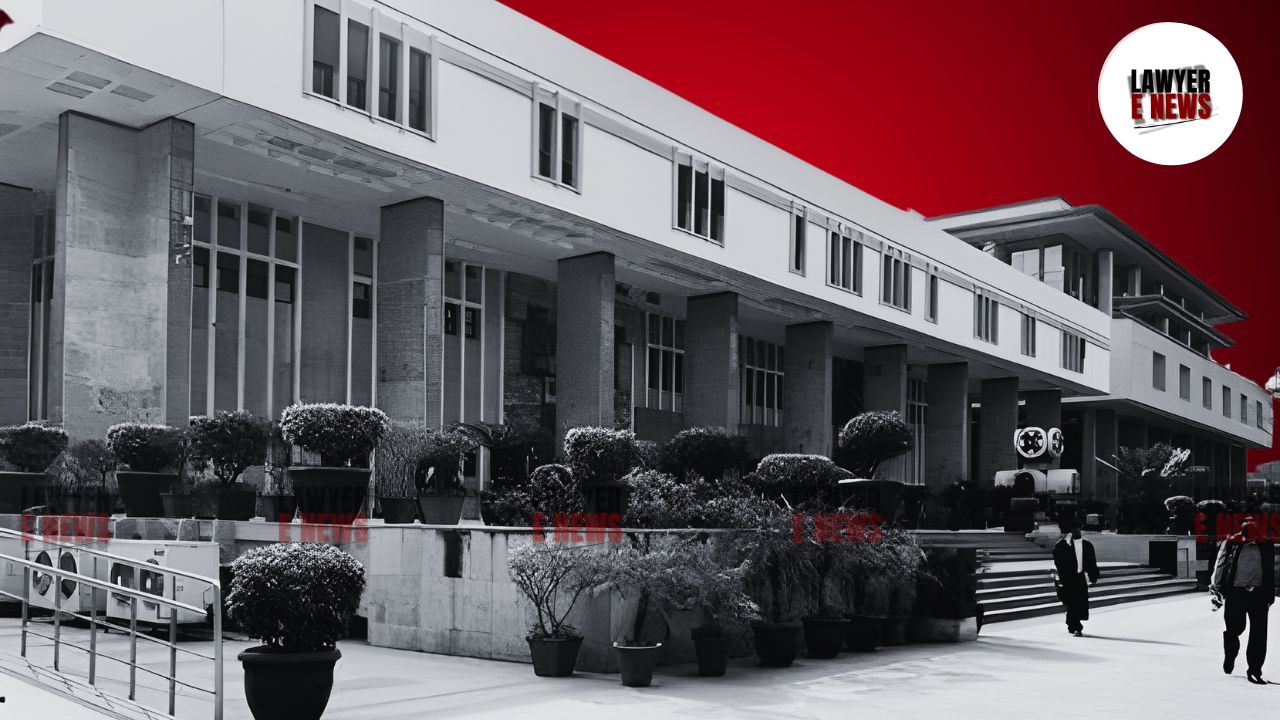-
by sayum
14 February 2026 2:22 PM



Delhi High Court in Disruptive Health Solutions Pvt Ltd & Ors. vs. Kotak Mahindra Bank Ltd. & Anr. dismissed an appeal challenging the assignment of an overdraft account to an asset reconstruction company (ARC). The appellants had sought to invalidate the assignment under the Reserve Bank of India (RBI) guidelines, claiming the account was not a stressed loan. The Court upheld the earlier decision directing the appellants to pursue their remedies under Section 17 of the SARFAESI Act, reiterating that writ petitions cannot circumvent statutory remedies.
Disruptive Health Solutions Pvt. Ltd. (the appellant) had an overdraft facility with Kotak Mahindra Bank, sanctioned at ₹8 crore. In March 2024, Kotak Mahindra Bank assigned the overdraft account to Pridhvi Asset Reconstruction and Securitisation Company Ltd. (the ARC), under an assignment agreement. The appellants claimed they were not notified about the assignment and that their overdraft account was a standard asset, not classified as stressed or non-performing.
After the assignment, the ARC demanded repayment of the outstanding amount. Despite the appellants' objections, the ARC classified the account as a non-performing asset (NPA) and initiated actions under the SARFAESI Act. Aggrieved by the assignment, the appellants filed a writ petition, seeking to invalidate the assignment, arguing that it violated RBI’s Master Directions for stressed assets.
The Single Judge dismissed the writ petition, directing the appellants to pursue their statutory remedies under the SARFAESI Act. The appellants challenged this decision before the Division Bench.
Whether the assignment of the overdraft account to an ARC was illegal, given that the account was allegedly not classified as a stressed loan under RBI guidelines .Whether the appellants could bypass the remedies under the SARFAESI Act and challenge the assignment through a writ petition.
RBI’s Master Directions on Stressed Loans: The appellants argued that their overdraft account was a performing asset and did not qualify as a stressed loan under the RBI’s Master Directions. The appellants contended that the account had not breached the overdraft limit for over 30 days and should not have been assigned to an ARC.
However, the Court noted that the appellants' overdraft account had breached the limit for 35 days and subsequently for 83 days, triggering its classification as a Stressed Loan. This met the criteria for assignment to an ARC, as per the RBI’s guidelines.
Jurisdiction Under Section 17 of SARFAESI Act: The Court reiterated that under the SARFAESI Act, borrowers have the remedy to challenge actions taken by secured creditors, such as assignment of assets or classification as NPAs, before the Debt Recovery Tribunal (DRT) under Section 17. The Court held that the writ petition could not be entertained when a clear statutory remedy was available under the SARFAESI Act.
The appellants’ argument that they would be left remediless if they approached the DRT was rejected, with the Court stating that the SARFAESI Act provides an adequate forum for redressal.
No Condonation of Breaches: The Court also dismissed the appellants’ claim that the 35-day breach had been implicitly regularized by the bank since no action was taken immediately. It found no evidence in the record that the bank had condoned these breaches.
The Court upheld the Single Judge’s ruling that the appellants must pursue their remedies under the SARFAESI Act. It rejected the argument that the assignment of the overdraft account was illegal or in violation of the RBI guidelines. The Court emphasized that the statutory framework of the SARFAESI Act is designed to handle such grievances, and the appellants could not bypass this framework by filing a writ petition.
The Delhi High Court dismissed the appeal, affirming that writ petitions are not an alternative to the statutory remedies under the SARFAESI Act. The appellants were directed to approach the appropriate forum under Section 17 of the Act to address their grievances regarding the assignment and classification of their overdraft account.
Date of Decision: October 16, 2024
Disruptive Health Solutions Pvt Ltd & Ors. vs. Kotak Mahindra Bank Ltd. & Anr.
